Commercial property and business investment
This week, we talk to Simon Price, a partner at Alder King, and Jane Harrison, Head of Economy at North Somerset Council, about the increasing appeal of Weston-super-Mare as a place to locate a business, and for developer investment.
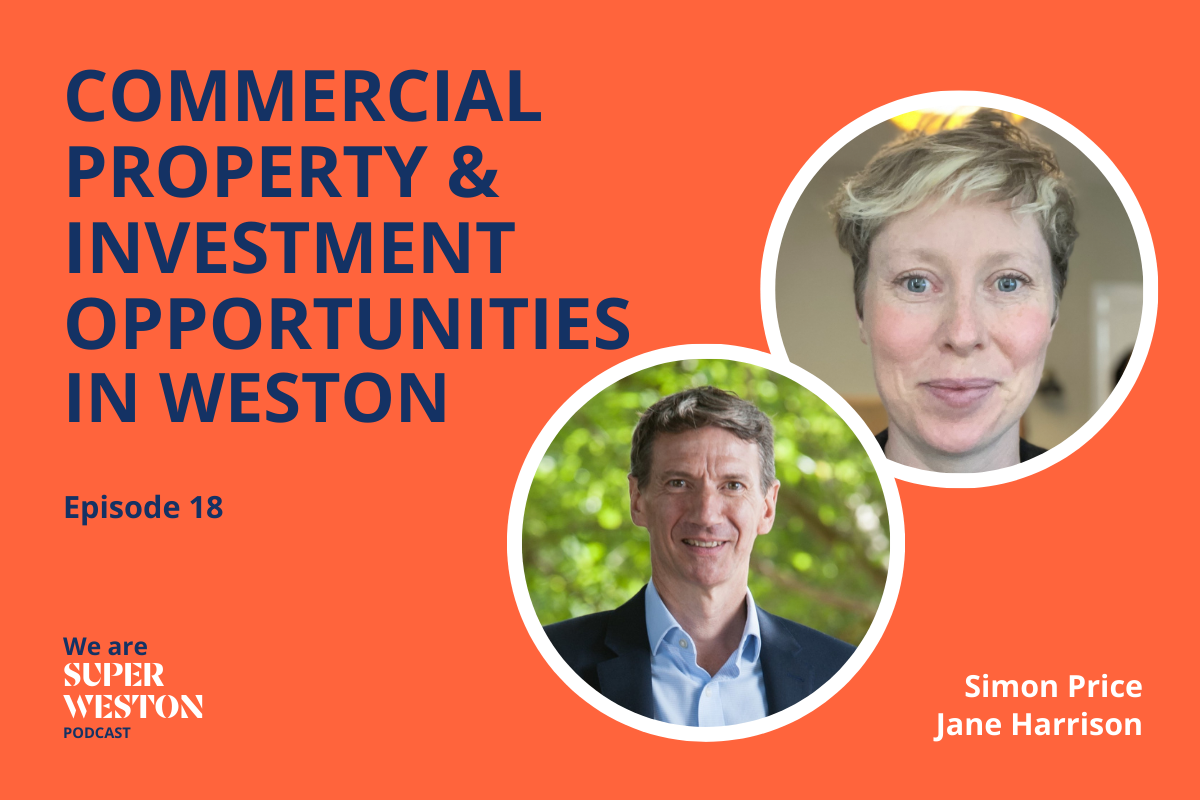
From small businesses leading the way in AI technology, to international brands like Thatchers, many companies are benefiting from operating in and around the Weston-super-Mare area.
Introduction to our guests
Simon Price is a partner at Alder King property consultants. He runs the agency side of the business and is involved in the development, investment and occupation of commercial property, – office industrial and retail properties across Weston and the wider North Somerset area.
Jane Harrison heads up the economy team at North Somerset Council. Her area of work focuses on trying to encourage inward investment into North Somerset, business support, and trying to encourage new businesses. She is responsible for making sure that growth is inclusive and sustainable, and works with partners to ensure that Weston’s residents have the skills they need to access the jobs that the council are creating, or that are being created by the private sector. Jane also looks after North Somerset Film Office, granting permits for production companies that want to film on North Somerset land.
What types of businesses and industries are predominant in Weston-super-Mare and North Somerset?
One of the key attractions of North Somerset, and specifically Weston, is the range and diversity of the type of business located in the town and the wider area. From an international corporate manufacturer, Thatcher’s Cider, to somebody working out of their bedroom, or a small office start-up dealing with AI, or environmental stuff, and everything in between. There’s a real mix in the economy locally, combined with traditional corporate types – lawyers, accountants etc.
It is a very diverse economy in terms of what’s thriving at the moment, and where we’re seeing demand. Manufacturing and logistics is something that’s really sought after, and strong as a sector at the moment in Weston.
One of the areas that is growing is advanced manufacturing – we’re not talking about a factory with chimneys and plumes of smoke, it’s a lot cleaner. It’s more the aerospace or automotive sector, electric vehicles, creating composite parts. The old impression of manufacturing is you’ve got hundreds of people queuing to get into the factory at eight o’clock in the morning, but it’s not like that anymore. It more automated, and a lot of it is much more technical desktop production stuff. People are working in more of a laboratory or an office environment. These places provide a lot of employment, but don’t need vast spaces to start with, although expansion is something that we are seeing more with demand for businesses that are doing very well, and are needing to expand, but factories or light industrial spaces around the 20-25,000 sq. feet mark need spaces in the area.
When thinking about skills, good jobs and high quality jobs, there’s a definite link between those things and what we want for Weston residents.
The local authority made a big investment in Food WorksSW, which has been fantastic and is bringing in lots of food producers on a relatively small scale initially, but growing some of them rapidly and quite significantly, which is a real positive.
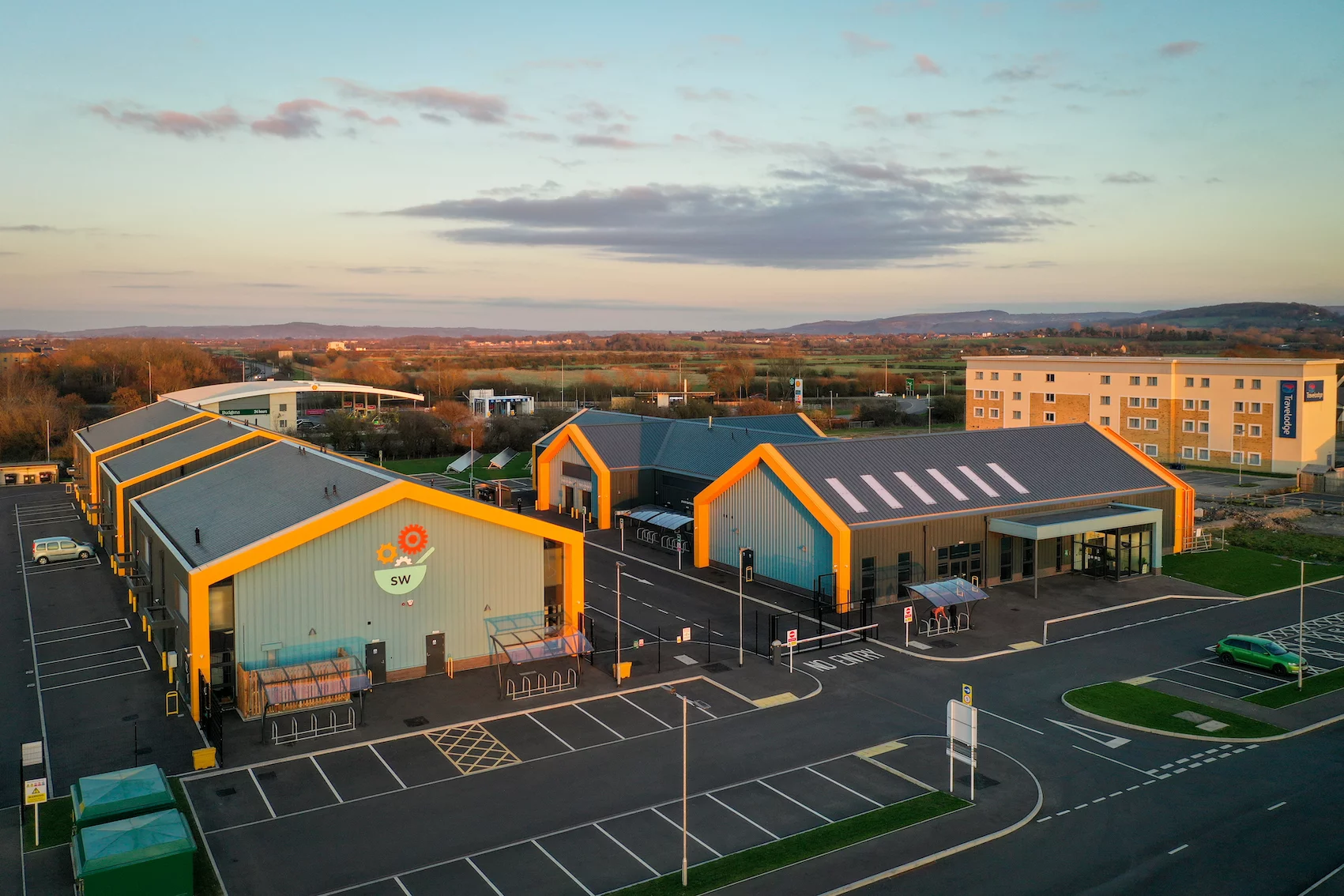
What are the opportunities in the Weston Enterprise Area?
It’s a partnership approach with South Gloucestershire Council, Bristol, Bath and North East Somerset. All of those areas have an enterprise area and within those enterprise areas, the authorities can keep 100% of the growth of the business rates that are raised in those areas over a 25 year period. That’s then pooled across the West of England and used for big infrastructure development and work that can be hard to fund, to unlock economic growth.
Some of the big major transport investments like Metro West have been funded through the Economic Development Fund, the EBF. What that means for Weston Enterprise Area is that we focus a lot of our thinking space, our activity, and support work on this area. We make sure that we try to allocate space for commercial growth in the enterprise area, we’re coming into a new local plan, we’re going through the process at the moment for a new local plan.
We need to plan ambitiously for more economic growth and make sure we can accommodate that. We need to ensure that we have got extra office support and operator time around the enterprise area, in terms of building networks, peer support, or finding business support, working with agents like Alder King to make sure that we’re sharing intelligence, sharing information, trying to work together to land enquiries and get them into that space, and then once they get in, give them a soft landing, hook them up with Weston College, hook them up with business support networks, if there are grants available, make sure they know how to apply for them, to try and encourage growth in that area. It’s in the interest of the local authority to get those business rates, so we can then spend the money on further investment in growth, and the creation of jobs and skills programmes, to make sure we’ve got a resilient economy.
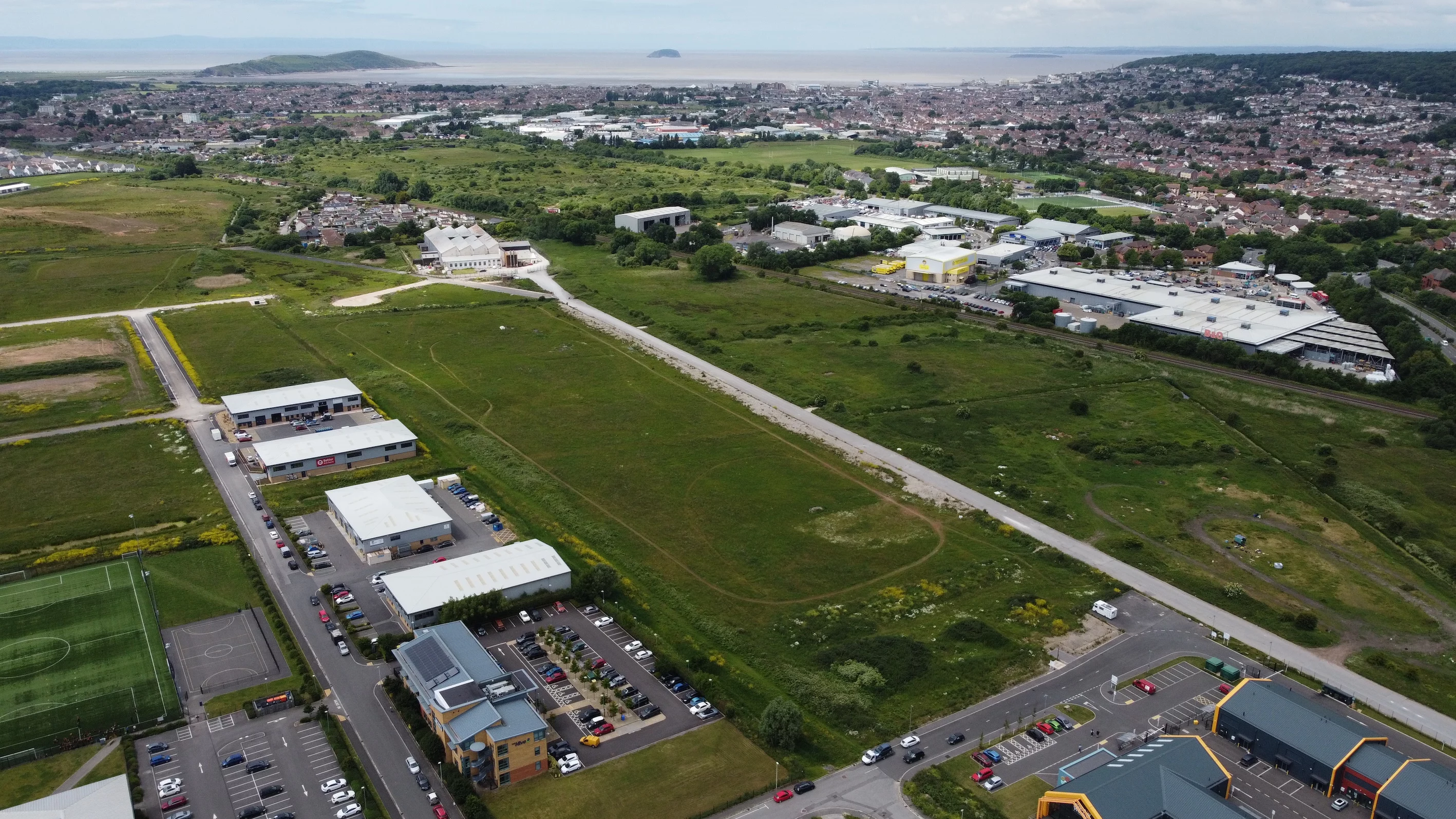
Why should businesses move to and invest in Weston-super-Mare?
There are a number of key factors which make Weston an attractive location for businesses and investors. First, is the availability of staff:
I’m one of those commuters for whom getting into Bristol has become increasingly difficult again, and a lot of people who are doing that commute, would much prefer to live and work in Weston, rather than have to drive to Bristol and do their job. There’s a ready-made workforce to be tapped in Weston.
The next thing is transport communication. Having the M5 junction and an excellent rail network is really important, and a number of occupiers that have come to Weston over recent years have cited both of those things as reasons they wanted to come to Weston.
The other thing Weston offers in terms of commercial property, is value for money. When you look at what your rental levels, or your capital values for property might be in Weston, you get a lot more for your money in Weston.
In the office sector, top end rents in Weston-super-Mare might be £18-£20 per sq. foot. Whereas, in central Bristol, the latest deals are £42-£50 per sq. foot. More than double for a distance of 20 miles. If you add in staff availability, then Weston becomes a very compelling case in terms of location for a lot of businesses.
Jane: There’s a lot of investment going in to Weston at the moment – the Levelling-up fund is an ambitious placemaking vision for the town, a culture-led regeneration for Weston.
The Tropicana has had the investment and is back up and running, also Birnbeck Pier, and the town centre has had an injection of cash well. Weston is beautiful, but there are some bits that we really need to work on. That’s what the Levelling-up funding is going to help us do. These coastal towns are going to become THE next place to go and visit.
We are getting there with the burgeoning arts and culture sector, it’s not necessarily seen by people outside of North Somerset. We’re going to amplify the amazing activity that’s happening – people and businesses want that.
When I’m talking to inward investors who are uncertain about Weston as a location, I send them the placemaking activity, and show what we’re investing in, and they say ‘oh, our staff would love that’.
There’s a really strong local business community in Weston. A lot of people collaborate on projects and work with people they know, and that’s a real positive. You can get access to very senior people in big organisations, including North Somerset Council, very easily in somewhere like Weston, which you can’t necessarily get in other bigger cities. That’s an attraction to a lot of businesses – they want their voice to be heard, and they want to know who to speak to, and then they want to have access, and you can achieve that in Weston.
There’s a linear-ness of relationships. You can often identify who it is you need to speak to in these organisations that actually make those critical meetings happen, and really reach out to people. That’s a real plus in a professional environment.
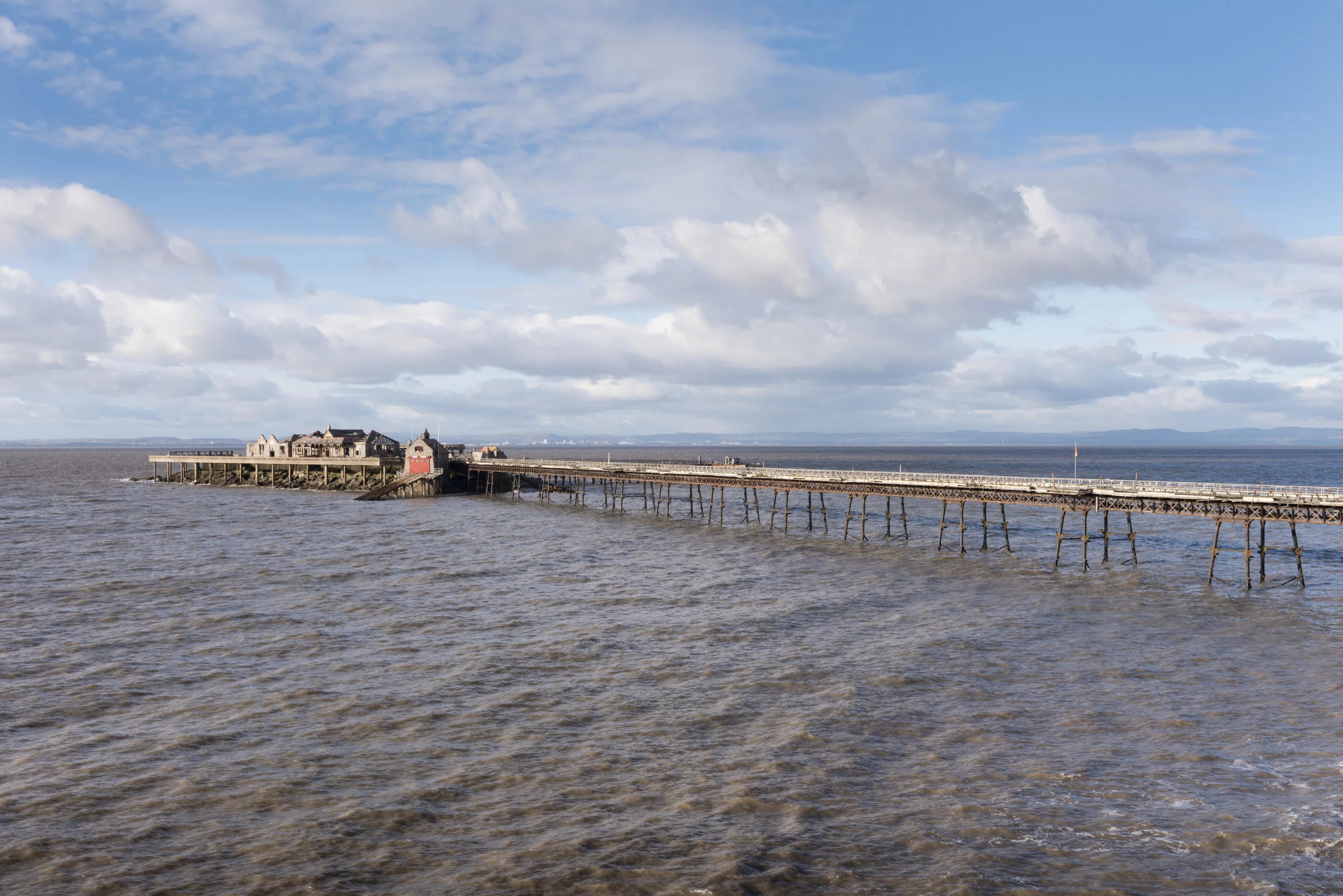
What trends are there in local and commercial real estate?
There are three key sectors to the commercial property market – industrial office, retail and leisure. Generally, the commercial property market has been a bit subdued over the last 12 months following the Mini Budget at the end of last year, and the wider macro economic issues. It’s been a bit quieter than it has in previous years, but in each of those three sectors, there are areas which are showing real signs of positivity over the last few months.
Industrial sector
By far the most active over the last couple of years has been the industrial sector. That’s partly as a result of the move away from retailers occupying bricks and mortar i.e. physical shops, but it’s also the growth of the manufacturing sector that we talked about previously.
Industrial has been the best performing sector since the end of the pandemic. Rents and capital values have moved up, but over the last 12 months, it’s been very difficult to justify new development, because commercial property development is very expensive and it comes with quite a risk to it.
The great news from a Weston perspective is that Jane’s team are involved in two new speculative developments. Developments are being undertaken by developers in Weston without any tenants identified before they start work – that’s quite a risk that is a massive vote of confidence in Weston as a location in the industrial market.
A scheme at Beaufighter court – which is the Weston business quarter – the old Weston airfield, is now onsite. They’re building 12 units there, which will total around about 30,000 sq. feet. That’s quite a significant development for Weston-super-Mare. That’s been done by a developer called KMW and this is the fourth time they’ve built speculative units in Weston. Two of those 12 units are already under offer, so they’ve identified tenants and agreed deals and there are 10 coming forward over the next six to 12 months. That’s a really positive sign.
In addition, in the same location, there’s another developer, Rockhaven, who’ve just put a planning application in with the council for about 100,000 sq. feet. A very big development, which will comprise about 64 individual units.
These companies are picking Weston ahead of other locations in the area to put their money into and undertake that risky development. Obviously it brings jobs, but they’re doing it because they can see that there is demand in the location. There are companies that either want to stay in Weston or that want to relocate into Weston to take those units.
Retail and leisure
At the other end of the scale, retail and leisure was hardest hit by the pandemic, lots of closures, and lots of occupiers suffering with big rents and business rates. Since the pandemic, there’s been further difficulties in terms of staff availability and energy cost. But over the last six months, in lots of high streets, including the high street in Weston, and the Sovereign Centre, we’ve seen a real up in terms of the number of independent operators, local organisations and local companies and start-ups looking to take vacant units. Hopefully that will bring greater diversity to the local high street.
Office sector
The office sector has suffered as a result of the pandemic, because lots of people started to work from home. Most companies now operate on a hybrid system – part-time in the office part-time working remotely. That means that most occupiers want less space than they used to.
Business owners and employers are putting much more emphasis on sustainability and environmental credentials of the space that they occupy, or even the onsite amenities for their staff, in an effort to try and encourage their employees gently back into the office, perhaps on a more regular basis.
Weston, again, is attracting good enquiries and good growth from existing occupiers, in terms of the office sector. The big issue in Weston in the office sector is our lack of supply. There’s not very much available office space in Weston – so there’s a bit of an opportunity there, although, as I say, building new office space at the moment is a bit risky and a bit expensive.
In the town centre, there are large, notable, vacant properties such as TJ Hughes, many of which the council don’t own. Taking them over would require us to purchase them, which would require funding.
We talked about the funding situation of local authorities being tricky, but one of the things that we’re going to be looking at bringing forward relatively soon is a relatively small pilot programme called the Occupancy Grants Programme, which will be a mixture of business support, combined with a grant at the end (up to £10,000) for our town centres and for businesses already operating in the centre, who can provide a business case to show that a one-off grant would really help their productivity and get into a more resilient position with their business. It’s to encourage new occupiers in to take on vacant spaces.
£10,000 pounds probably isn’t going to touch the side of the TJ Hughes building, but it may help tackling those smaller units, in terms of getting people in those spaces and providing some support for those upfront costs when taking on a new unit. That’s to encourage diversity into the high street, deal with some of the vacancies that we’re seeing, as well as supporting the existing occupiers. That’s being funded through the UK Shared Prosperity Fund, that my team managed and we’ll be delivering that, hopefully from January 2024.
I think town centres could always do with more investment – we’re going to see Bristol City Council do a vacant unit grant programme as well. We’re taking some of their ideas, adapting it to Weston and the town centre and seeing what works best.
Some funding will be going into upgrading some of the vacant units in the town centre, there are bits of investment going in. But what we need, as well as the confidence from the market, is to see that investment and be up for taking on those units and operating those units from a retail perspective, which is tricky, because of bigger structural trends and changes around how we shop, and the way we use our high streets, which needs to be more about the experience than going and purchasing a product, or a blend of both. Something that you can’t get on the internet, like getting your nails done, having a coffee with a mate, going into the library, paying a bill that you need to pay in the bank, whatever it is, you build on top of that.
On the office side of things, there’s quite a lot of demand coming from smaller occupiers. The type of people that have gone into The Stable, for example, in the town centre, has been really successful, and places like the hive and We are Super.
I can see two or three more buildings of that nature being converted, to provide those smaller workspace areas for either start-ups or young and growing companies. I think that’s where quite a bit of the activity from the office sector in the town centre and that will help with adding footfall and vibrancy to the area.
The other thing that is already happening in the town centre is a wider diversification of use – there’s going to be more health-related occupiers and more services, in terms of the types of people that are going to be taking space on the High Street and around the town centre. Hopefully, some of those bigger buildings will either get broken up, or come back into beneficial use.
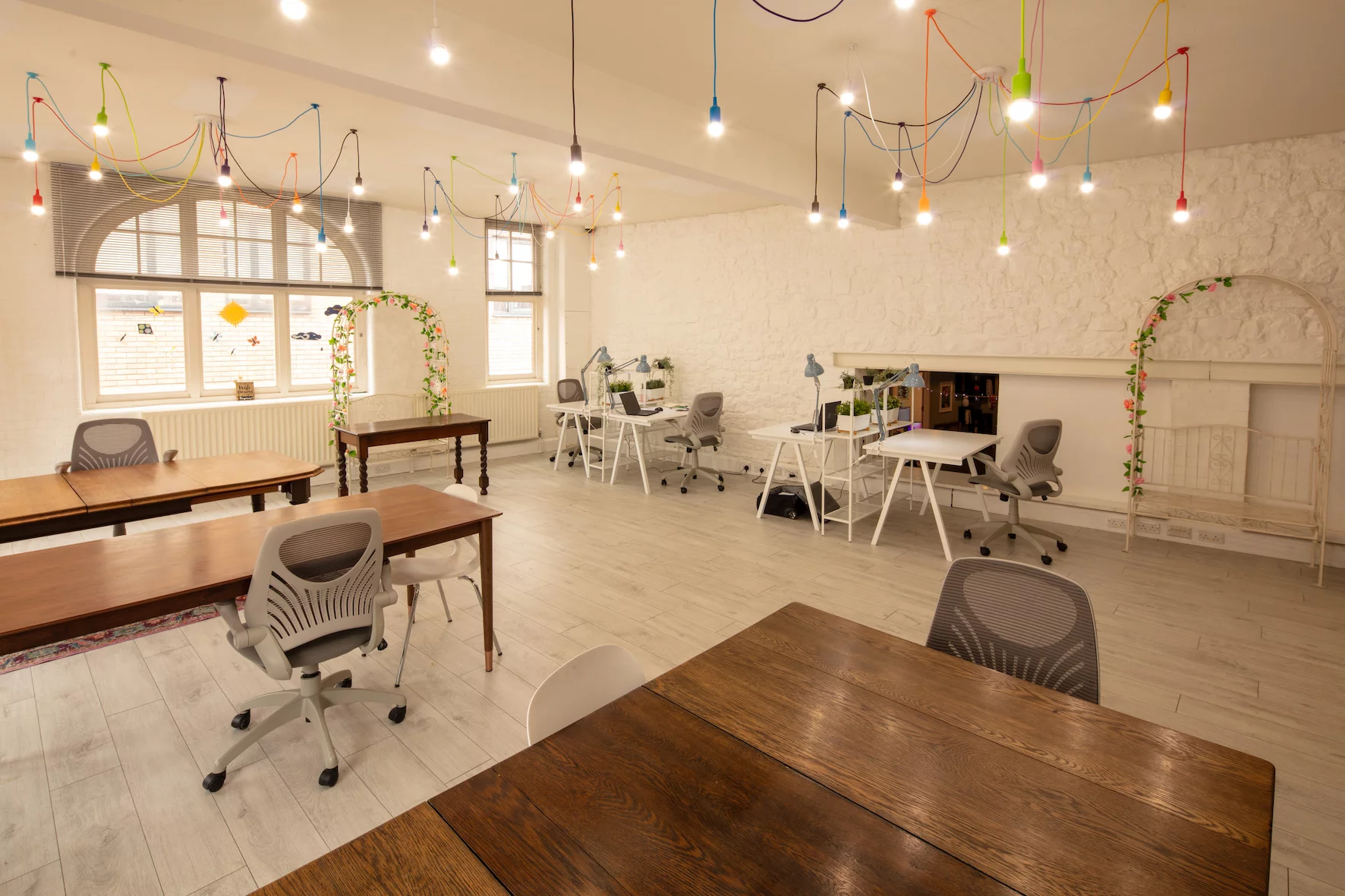
Do you think that it is a benefit to businesses thinking about investing in the area that there is an environmental push from local community groups?
Absolutely. We are seeing ESG – Environmental Social Governance – right up there now in relation to all business thinking.
The government is encouraging people to do more and contribute more, but they’re actually under all sorts of obligations in terms of the way they report their accounts to show what they’re doing to improve their ESG credentials and their ESG contributions.
In our experience, that’s feeding through from businesses’ selection of accommodation. They will look at what the sustainability credentials are of new office space, and new industrial space, when they’re looking at the options available. That’s now a very big part of the decision-making process. It used to be all about location and cost, but now it’s also about ESG – what it adds in terms of credentials and contribution.
It also feeds through into what they do with their staff and their teams, and how they engage with their teams. My experience personally, is that more and more team members are encouraged and really excited about the opportunities that this type of thing can bring and the contribution they can make, not only the business area, but to the wider community, by getting involved in those types of organisations. The fact that there are so many of them in Weston is a real benefit to the community.
One of the things we need to think about is how we link up those groups with businesses, so that where businesses are interested are in ESG, they are following up on that in a locally meaningful way. They’re not just ticking boxes according to a standard template of things that they need to do, but they making sure the environmental initiative they’re involved with, is really meaningful to the people of Weston. We try to make sure that they’re thinking, ‘what more could my team be doing to find ways to connect initiatives, with some of the social value and ESG work’. Helping those that are new to the area, who don’t know where to start, or who to get involved with, have that local impact.
Are property values in this area generally appreciating or depreciating?
It depends on which sector you’re looking at, industrial is increasing, because that’s been the busiest sector, and that’s where the greatest amount of demand is.
It always comes back to supply and demand, and Weston is short on industrial space, so those new developments are going to be setting new, high rental levels and capital values.
Offices are increasing slightly because there’s very little supply of office space available in in Weston – certainly that is modern, good quality, top ESG.
There’s not very much growth in retail and leisure, I would say it has fallen a bit as a result of the pandemic.
What is the demographic profile of the area?
If you look at North Somerset as one area, we’re quite high-skilled, we’ve got a low unemployment rate. We’ve got lots of people with NVQ Level four qualifications. As a result we often struggle to make our case to the government that we are an area that needs investment. But that masks the fact that there are some areas, particularly in Weston, where we see inequality, lower-skill levels and people who are long-term unemployed.
There are two main demographic challenges in relation to the economy; one is re-skilling and up-skilling the people that we know have the wrong skills for the current labour market, or the current employment needs. We know we’ve got sectors that struggle to recruit, we know we’ve got a group of people who are unemployed and maybe we’ll need to re-skill in those areas.
One of the things is retention of talent, we still struggle with retaining talent, we have people who’ve gone to university and maybe aren’t coming back here, so we’re not getting that influx of talent back into the area. That is changing rapidly and we’ll see an impact of that.
Something we want to be working on is choosing an area to buy your house, and starting a family here. Many people are really surprised by what they find in Weston – they realise it’s an amazing place to start a business, buy a house, start a family.
We think a lot about the mismatch between the people we know who are unemployed, and the skills that they need – that might be sectoral skill or a technical skill, but it’s also a kind of wider employability skill that we need to work on. That’s where a lot of our employment and skills programmes are targeted. We try and do those in partnership with employers, making sure they’re linked up to work experience opportunities, working job interviews, an employer day or insight day, so that people are getting a real taste of what a job with a Weston employer looks and feels like once they’ve got their way through these courses and employment support programmes.
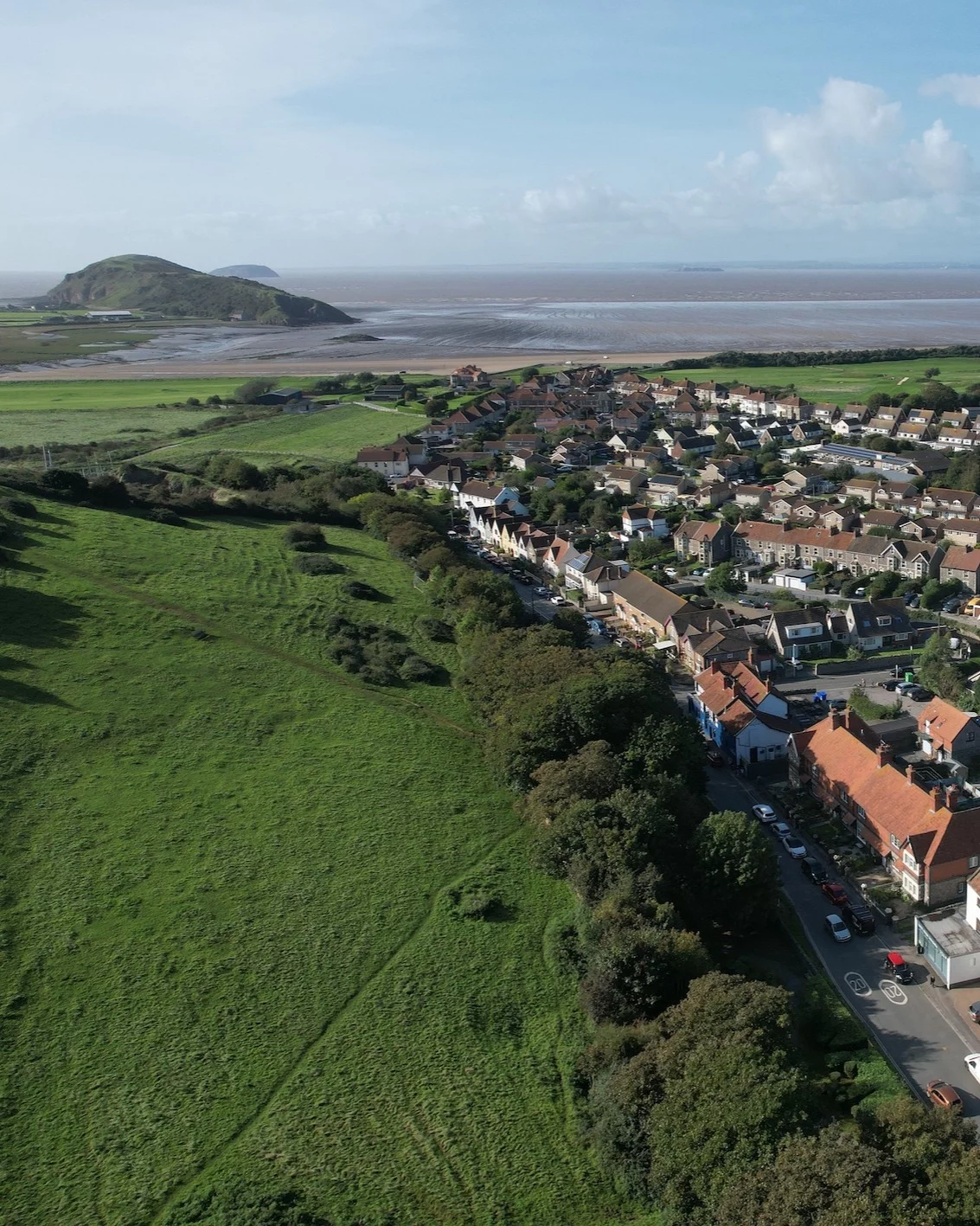
What’s something about Weston that you wish more people knew about?
I’d like to give a plug to Weston Hospice Care. I stood down earlier in the year, but I’ve had close knowledge of what they do for a few years. They are an absolutely fantastic organisation. Hospices only get a very small proportion of their funding from the government, so everything else relies on the local community contributing, but they are fantastically committed and they are an inspirational organisation.
The strength of the business network and the business community. I think if you’re coming here and you’re considering starting a business or if you’re a big company looking to invest in Weston, or move your business to Weston, somebody will know somebody who can help you and they will help you.
They’ll plug you into a network for the thing that you’re trying to do, or they will try and find someone who can help you. I’ll also give a special shout out to the work that Weston College does with businesses. They are so employer-focused in trying to help businesses because they know, at the end of the day, the students are the ones that will be going to those jobs.
Weston College is one of the biggest – if not the biggest employer – and occupier in the town centre. And the contribution they make in terms of the reputation of Weston as a location is fantastic, in terms of the service they deliver.
For the inward investors that the team and I are working with, they always mention the FE provision (Further Education), the engagement that Weston College has with them, the relationship between the council, Weston College and businesses, and being able to work positively in that space. It’s a real asset.
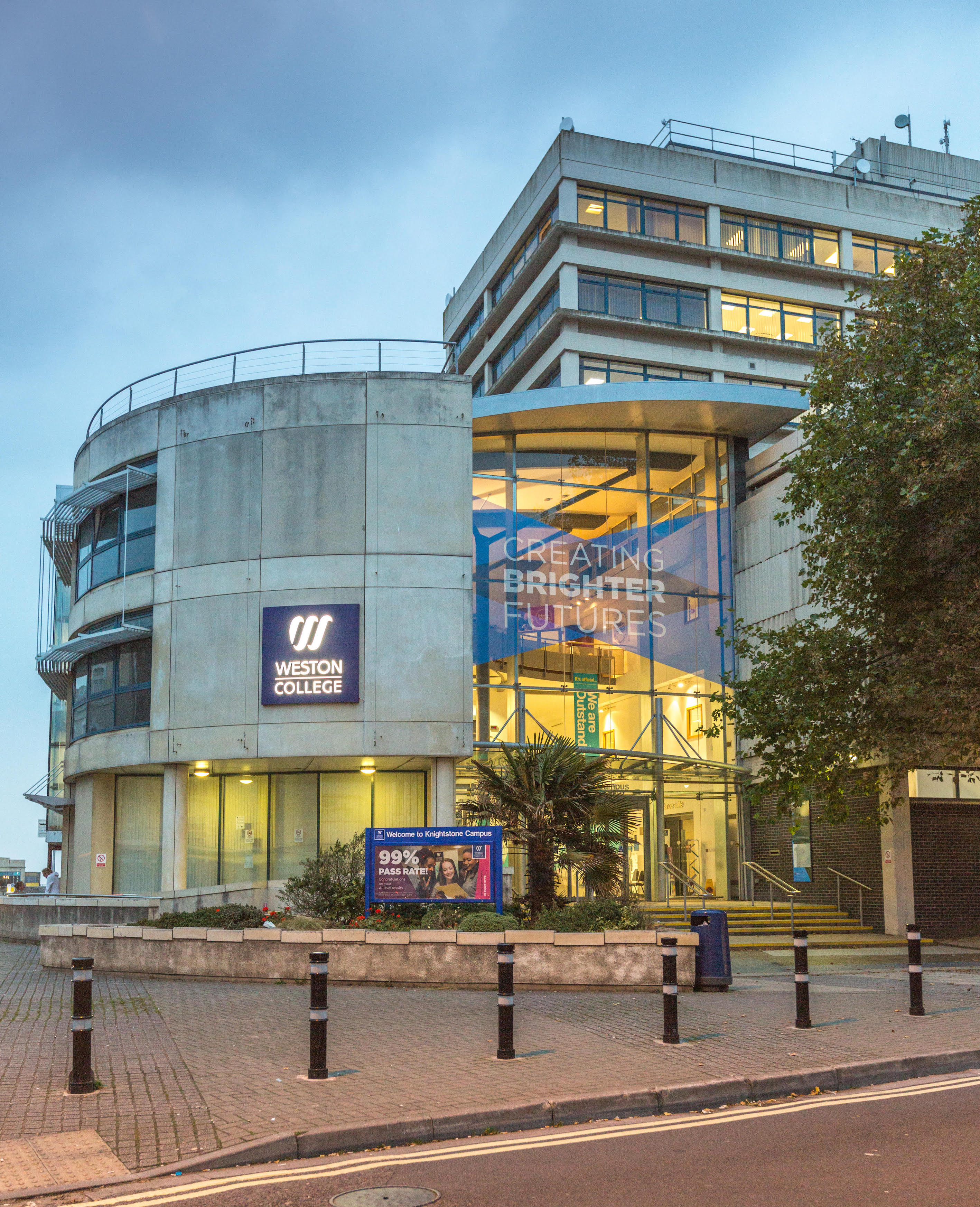
Where’s your favourite place to eat out in Weston?
Simon: Michelangelo’s, Meze Mazi on Oxford Street, which is fantastic. But if I could go to Zeera every week, I would, it’s amazing.
Jane: I’ve got two small children so I don’t get out much in the evening, I get out for lunch, and often go to The Food Den and have something from the deli there.
What about going out for drinks and coffee in Weston?
Simon: For drinks I’d say Duke of Oxford and The Regency because they’re old fashioned pubs. Vaults as well we pop into now and again.
Jane: Fork n’ Ale we drink in quite a lot. There’s also a new little coffee shop that’s opened opposite the Odeon. There’s a Thai restaurant, Mimi’s, which is excellent there too.
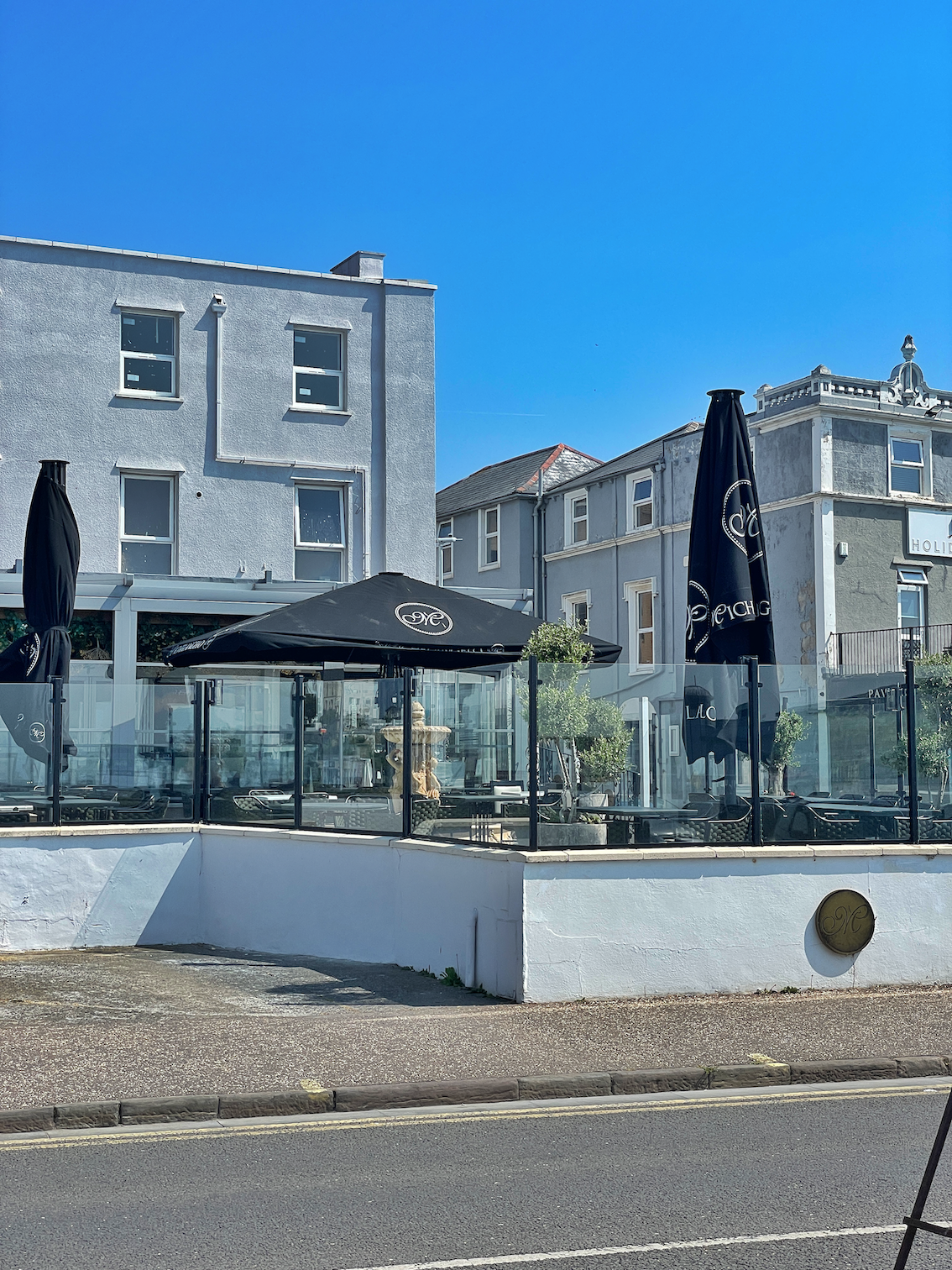
Discover more
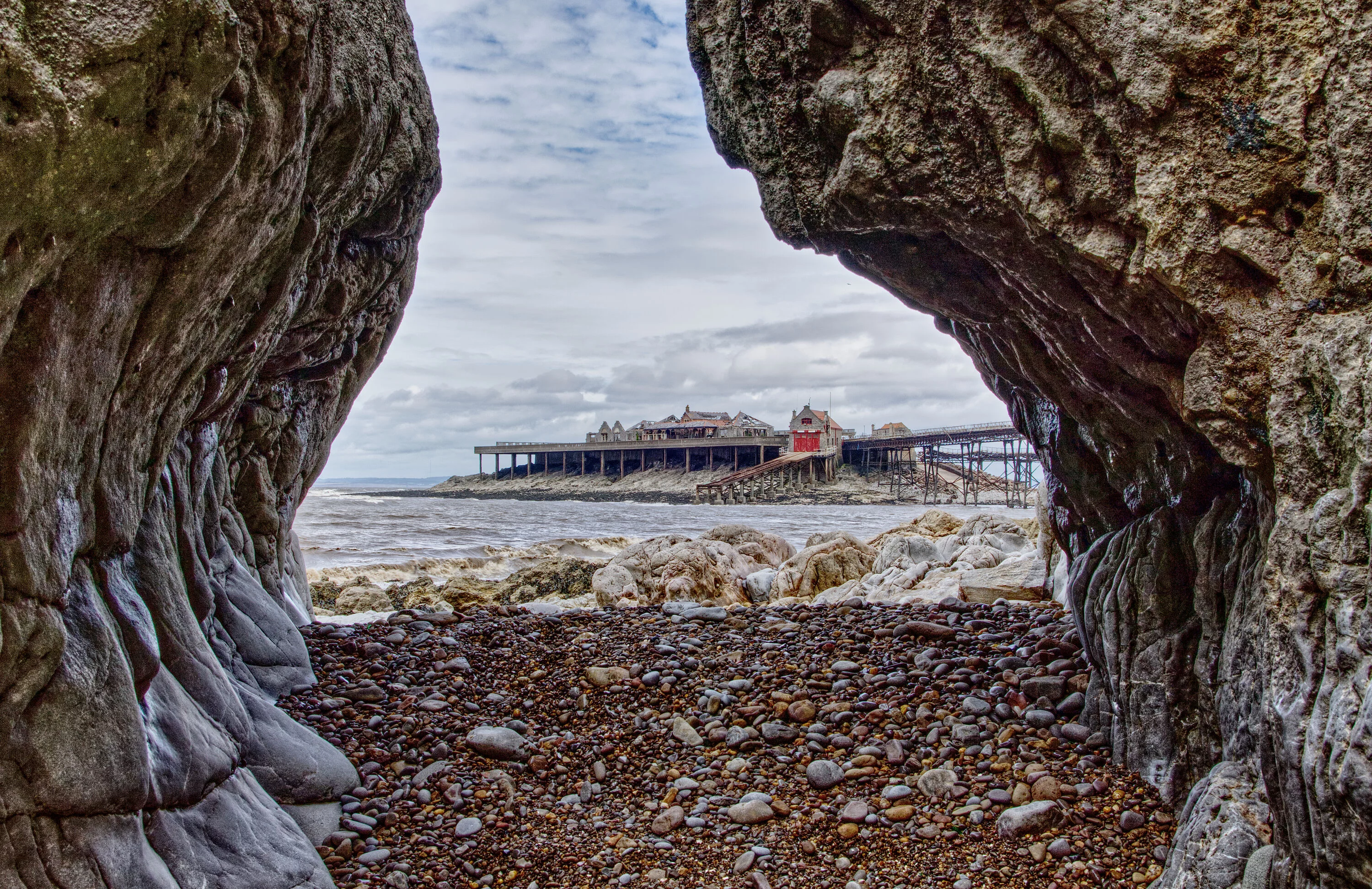
Important meeting to begin the development of Birnbeck Pier
The progression of the Birnbeck Pier restoration project in Weston-super-Mare will be a focal point at the upcoming North Somerset Council meeting on February 7 2024
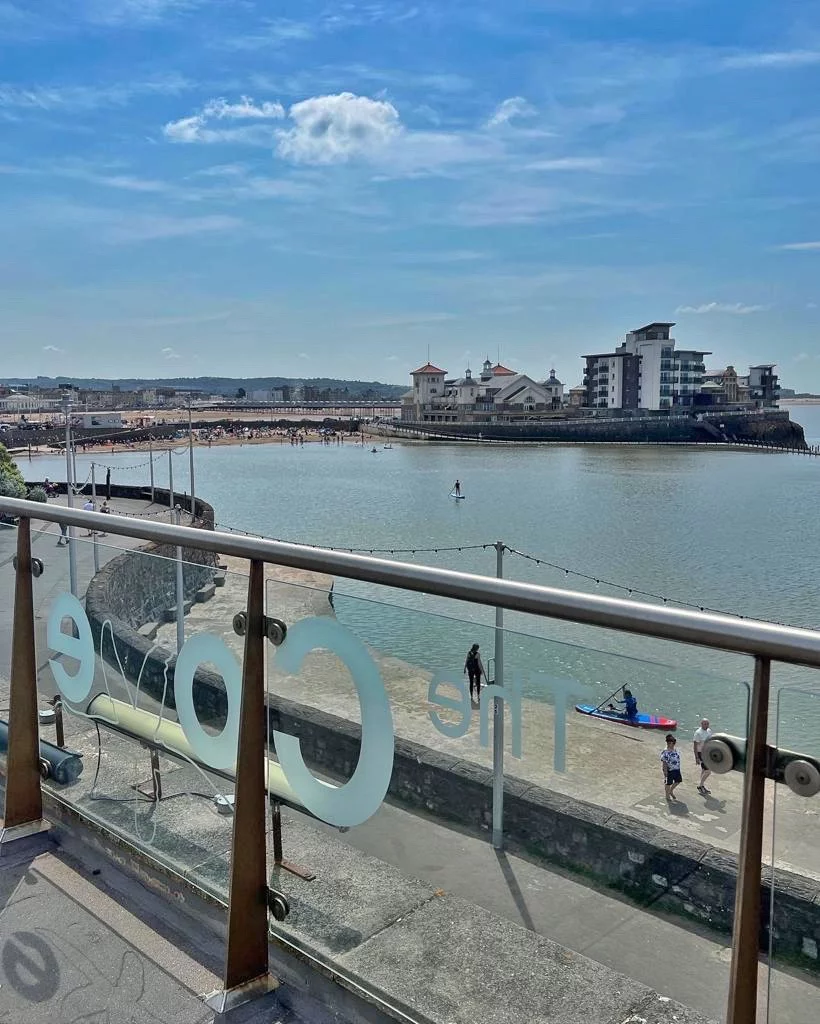
Marine Lake enhancement work begins
The upcoming enhancement phase at Weston-super-Mare's Marine Lake is set to commence this week 6th February 2024, marking a significant milestone in the rejuvenation efforts facilitated by North Somerset Council's successful bid for a £20 million investment from the UK government's Levelling Up Fund.
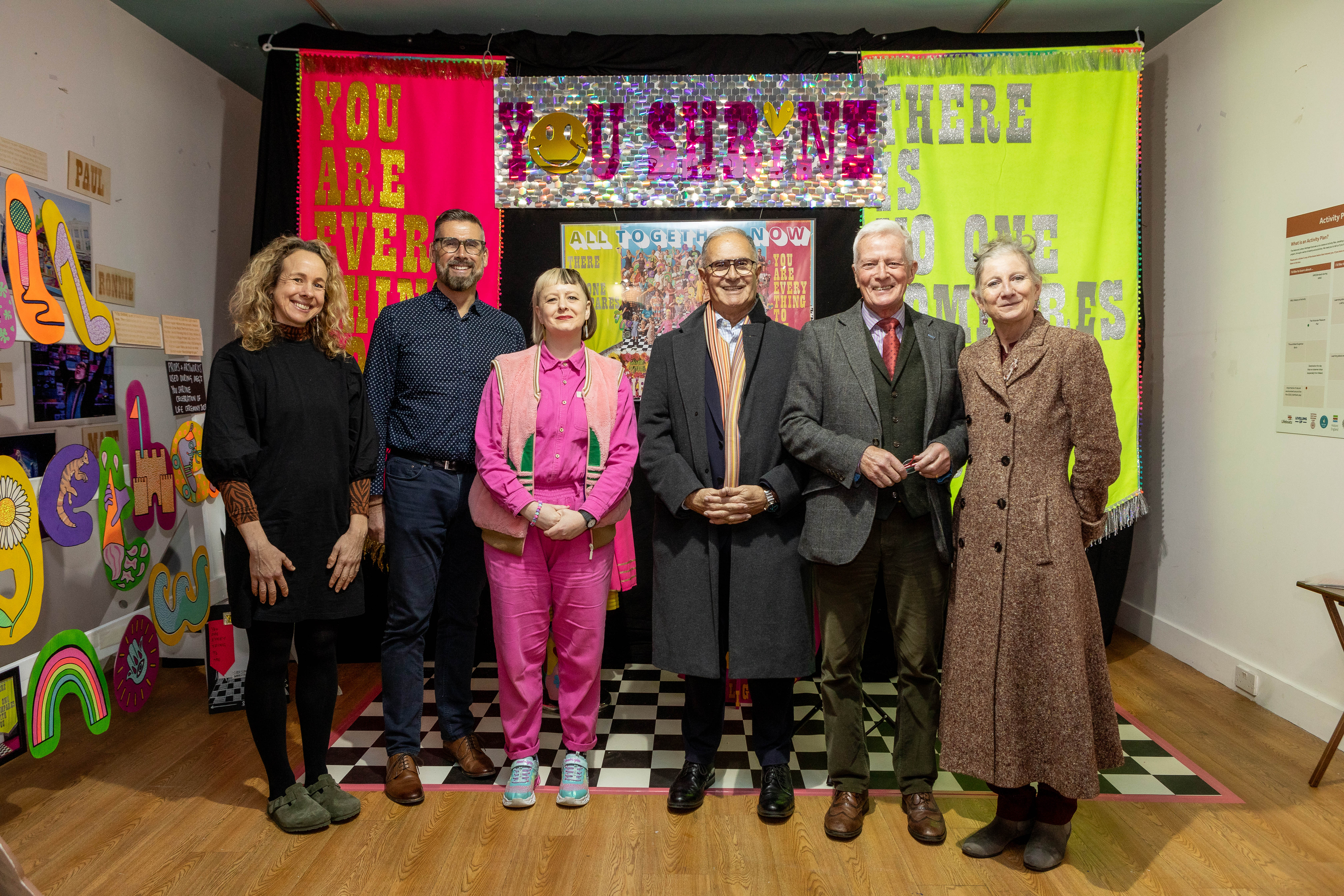
New Exhibition Celebrates Weston’s High Street Heritage Action Zone
Dive into Weston's history at 'All Together Now,' a free exhibition revealing the High Street Heritage Action Zone's £1.1m investment from Historic England.